
Hans Florian Zimmer is a German-born film score composer and music producer. He has won two Oscars, four Grammys, and has been nominated for three Emmys and a Tony. Zimmer was also named on the list of Top 100 Living Geniuses, published by The Daily Telegraph in 2007.
Debbie Wiseman, OBE is a British composer for film, television and the concert hall, known also as a conductor and a radio and television presenter.

Adam Bryanbaum Wiltzie is an American composer and sound engineer based in Brussels, Belgium.

Hildur Ingveldardóttir Guðnadóttir is an Icelandic musician and composer. A classically trained cellist, she has played and recorded with the bands Pan Sonic, Throbbing Gristle, Múm, and Stórsveit Nix Noltes, and has toured with Animal Collective and Sunn O))). She has received various accolades, including an Academy Award, two Grammy Awards, and a Primetime Emmy Award.

Volker Bertelmann is a German composer, pianist and former rapper who mainly performs and records under the name Hauschka. He is best known for his compositions for prepared piano. He won an Academy Award and a British Academy Film Award for his work on All Quiet on the Western Front (2022).

Dustin O'Halloran is an American composer and pianist. Aside from releasing music as a recording artist, O'Halloran is a film and TV composer, as well as one half of ambient act A Winged Victory for the Sullen.
Francis Edward Fitzpatrick, more commonly known as Frank Fitzpatrick, is an American composer, music producer, author, wellness expert, filmmaker and social entrepreneur.
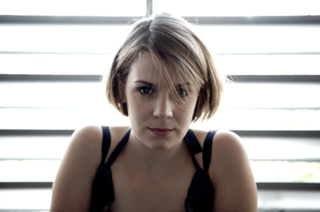
Alev Lenz is a Turkish–German, Grammy-nominated record producer, singer-songwriter and composer.
Ivan Iusco is an Italian American award-winning composer and record producer based in Los Angeles, California, United States.

Kristopher Bowers is an American composer, pianist and documentary director. He has composed scores for films, including Green Book, King Richard, and The Color Purple, and television series, among them Bridgerton, Mrs. America, Dear White People, and When They See Us.
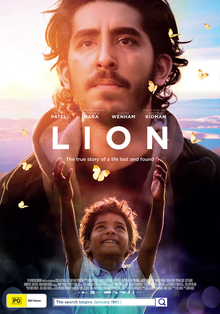
Lion is a 2016 Australian biographical drama film directed by Garth Davis from a screenplay by Luke Davies based on the 2013 non-fiction book A Long Way Home by Saroo Brierley. The film stars Dev Patel, Sunny Pawar, Rooney Mara, David Wenham, and Nicole Kidman, as well as Abhishek Bharate, Divian Ladwa, Priyanka Bose, Deepti Naval, Tannishtha Chatterjee, and Nawazuddin Siddiqui. It tells the true story of how Brierley, 25 years after being separated from his family in India, sets out to find them. It was a joint production between Australia and the United Kingdom.

Zootopia (Original Motion Picture Soundtrack) is the soundtrack album to the 2016 animated film Zootopia produced by Walt Disney Animation Studios. The film's score is composed by Michael Giacchino, marking his first feature-length project for Walt Disney Animation Studios, after composing for specials and short films produced by the company, as well as multiple Pixar films. In addition to the original score, the film features a song titled "Try Everything" performed by Shakira, apart from providing voice-over to the character Gazelle, with the song written by Sia and Stargate. The soundtrack was released digitally and through CD on March 4 and 25, 2016 by Walt Disney Records. A double-LP picture disc titled Music From Zootopia was released on May 19, 2017.
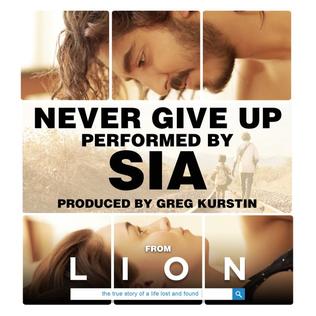
"Never Give Up" is a song recorded by Sia, from the soundtrack of the Garth Davis-directed film, Lion (2016). Written by Sia and her producer Greg Kurstin, the song was released on 18 November 2016. It was nominated for a Grammy Award for Best Song Written For Visual Media. It is an electropop ballad, with influences of Indian Music.
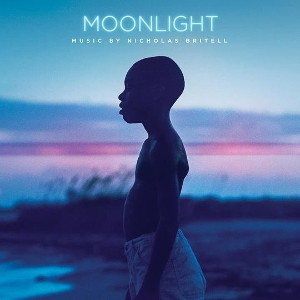
Moonlight (Original Motion Picture Soundtrack) is the soundtrack to the 2016 film of the same name directed by Barry Jenkins. The film's original score is composed by Nicholas Britell who applied a chopped and screwed technique of hip hop remixes to orchestral music, producing a "fluid, bass-heavy score". The soundtrack album consisted of 21 tracks, with incorporated compositions from Goodie Mob, Boris Gardiner and Barbara Lewis and an arrangement of Wolfgang Amadeus Mozart's "Vesperae solennes de confessore" by Britell, with the score accompanying the remainder of it.

Yair Elazar Glotman is a composer and musician based in Berlin.

Arrival (Original Motion Picture Soundtrack) is the soundtrack composed by Jóhann Jóhannsson for Denis Villeneuve's 2016 film Arrival. It was released under Deutsche Grammophon on November 11, 2016, the same day as the film's theatrical release. The score was met with critical acclaim and received accolades at various ceremonies, including a nomination for the BAFTA Award for Best Original Music and Golden Globe Award for Best Original Score, but was ruled ineligible for contention at the 89th Academy Awards.
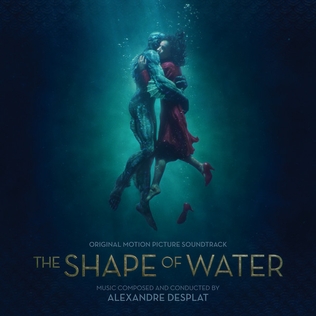
The Shape of Water (Original Motion Picture Soundtrack) is the soundtrack album to the Academy Award-winning film of the same name. It featured 26 tracks — most of the tracks were from the original score composed by Alexandre Desplat and some tracks are incorporated songs, being originated from the 1940s and 1960s as the film is set during the Cold War period. The film, directed by Guillermo del Toro, who also co-wrote the script with Vanessa Taylor, stars Sally Hawkins, Michael Shannon, Richard Jenkins, Doug Jones, Michael Stuhlbarg, and Octavia Spencer.

The King's Speech (Original Motion Picture Soundtrack) is the soundtrack to the Academy Award-winning film The King's Speech, released by Decca Records on 22 November 2010. Alexandre Desplat composed the film's original music. The score consisted of minimalistic sounds created with piano and strings, and a limited orchestra with oboe and harp being used. It was recorded using old microphones from the EMI archives, used by the royal family, in order to create a vintage and dated sound. The minimalistic use of the music is used to describe Colin Firth's character, the future King George VI.
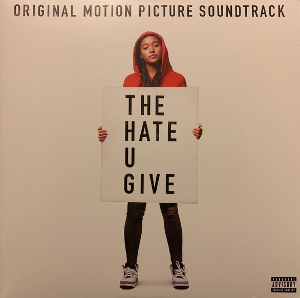
The Hate U Give is a 2018 drama film co-produced and directed by George Tillman Jr., based on the 2017 young adult novel of the same name by Angie Thomas, and stars Amandla Stenberg, Regina Hall, Russell Hornsby, KJ Apa, Common, and Anthony Mackie. It is a part of the shared fictional universe Simonverse, on which the novel is based on, it is featured in the Garden Heights series.

All Quiet on the Western Front (Soundtrack from the Netflix Film) is the score album composed by German composer Volker 'Hauschka' Bertelmann to the 2022 film All Quiet on the Western Front, directed by Edward Berger, based on the 1929 novel of the same name by Erich Maria Remarque as well as the third feature film to be adapted from the novel after the 1930 silent film and 1979 television film. The album, featuring 24-tracks, was released by Netflix Music on October 28, 2022, the same day as the film.

















